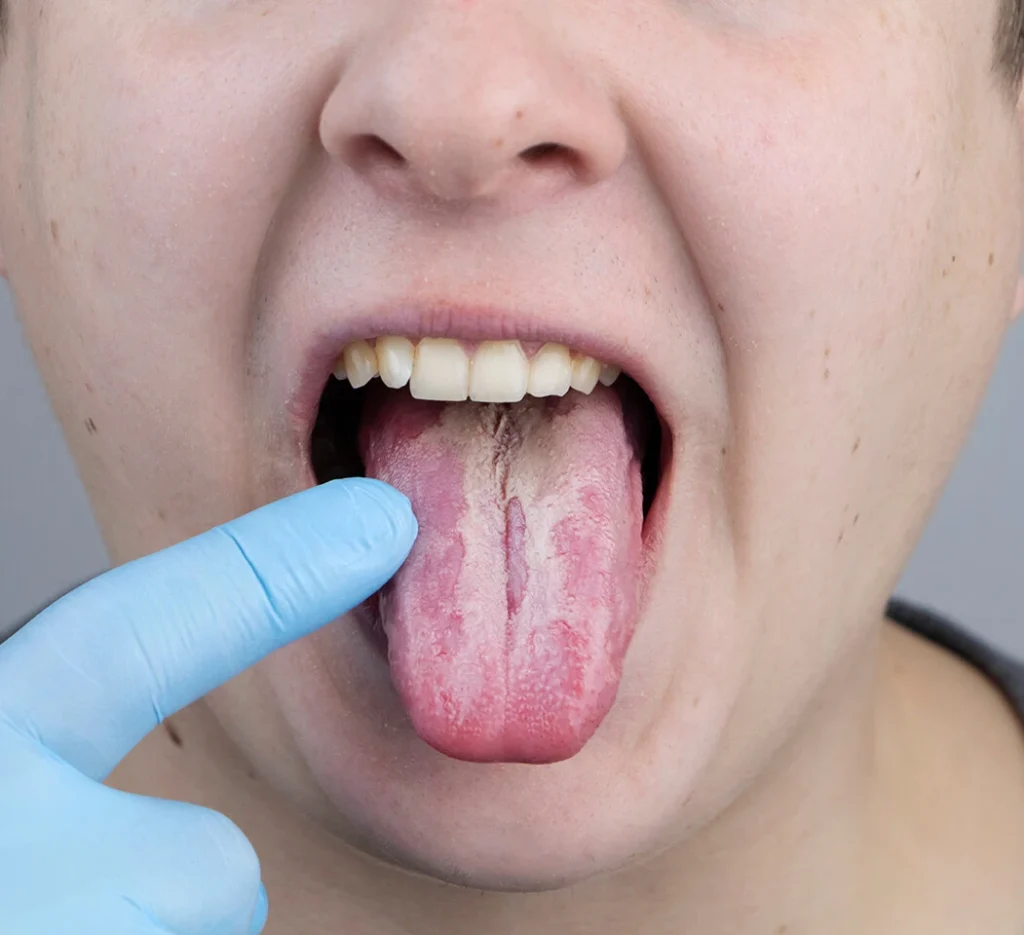For Healthcare Professionals
Oral Mucositis
Unlocking the Mystery of Oral Mucositis
Oral Mucositis in Cancer Patients
Oral mucositis is a serious complication of cancer treatment. Oral mucositis is an inflammatory condition of the lining (mucosa) of the mouth. When patients develop oral mucositis, redness and soreness of the mouth occurs. Although a significant number of patients undergoing cancer chemotherapy develop oral mucositis, it is an especially common problem in patients having a bone marrow transplantation and in patients that are undergoing receiving radiation treatment for cancer of the head and neck.
The inflammation of oral mucositis begins with damage of the lining of the mouth that is caused directly by toxic effects from the treatments. Other factors then stimulate this inflammation to progress. Mouth pain and some difficulty eating are common occurrences in patients with oral mucositis. However, in some patients, the pain may become very difficult to tolerate and poor intake of nutrients occurs. These patients may end up in the hospital to receive strong pain medications and nutritional therapy.


Measuring the Severity of Oral Mucositis
There are a variety of ways to measure the severity of oral mucositis. In general, these measurements depend on two factors; how the inside of the mouth looks and how much the impact the oral mucositis is having on the intake of foods and liquids. For example, in a mild case of mucositis, a patient may develop redness (known as erythema) in the lining tissues of the mouth.
This can occur without symptoms or minor discomfort. If the redness turns into visible sores, (or ulcers), on the inside lining of the mouth, oral mucositis is more severe. If these ulcers are accompanied by moderate pain and/or some difficulty swallowing, the degree of severity of oral mucositis increases. At this point, patients begin having some difficulty eating but can keep up with their nutritional needs. If the pain becomes severe enough, especially in the setting of deep ulcerations of the mouth, oral mucositis is very severe. At this point, some patients must come to the hospital and receive nutritional therapy by an intravenous route.
Consequences of Moderate to Severe Oral Mucositis
It also becomes necessary to treat the pain of oral mucositis in moderate to severe cases with opioid pain relievers.
These can be administered as a gel inside of the mouth, a patch, or an intravenous route.
At times, moderate to severe oral mucositis can limit the patient’s ability to tolerate either chemotherapy or radiotherapy.
This is significant since it is very important to avoid delaying cancer treatment since these delays can limit its effectiveness. In its most serious state, oral mucositis can decrease a patient’s quality of life and can cause a variety of other problems.
These include the loss of weight, nutrient deficiencies, and higher risk for infections and other complications of treatment.

Statistics on Oral Mucositis
Oral mucositis occurs in patients undergoing cancer treatment
40%
of patients receiving chemotherapy
80%
of patients receiving radiation therapy for head and neck cancer
+90%
of patients undergoing bone marrow transplantation

